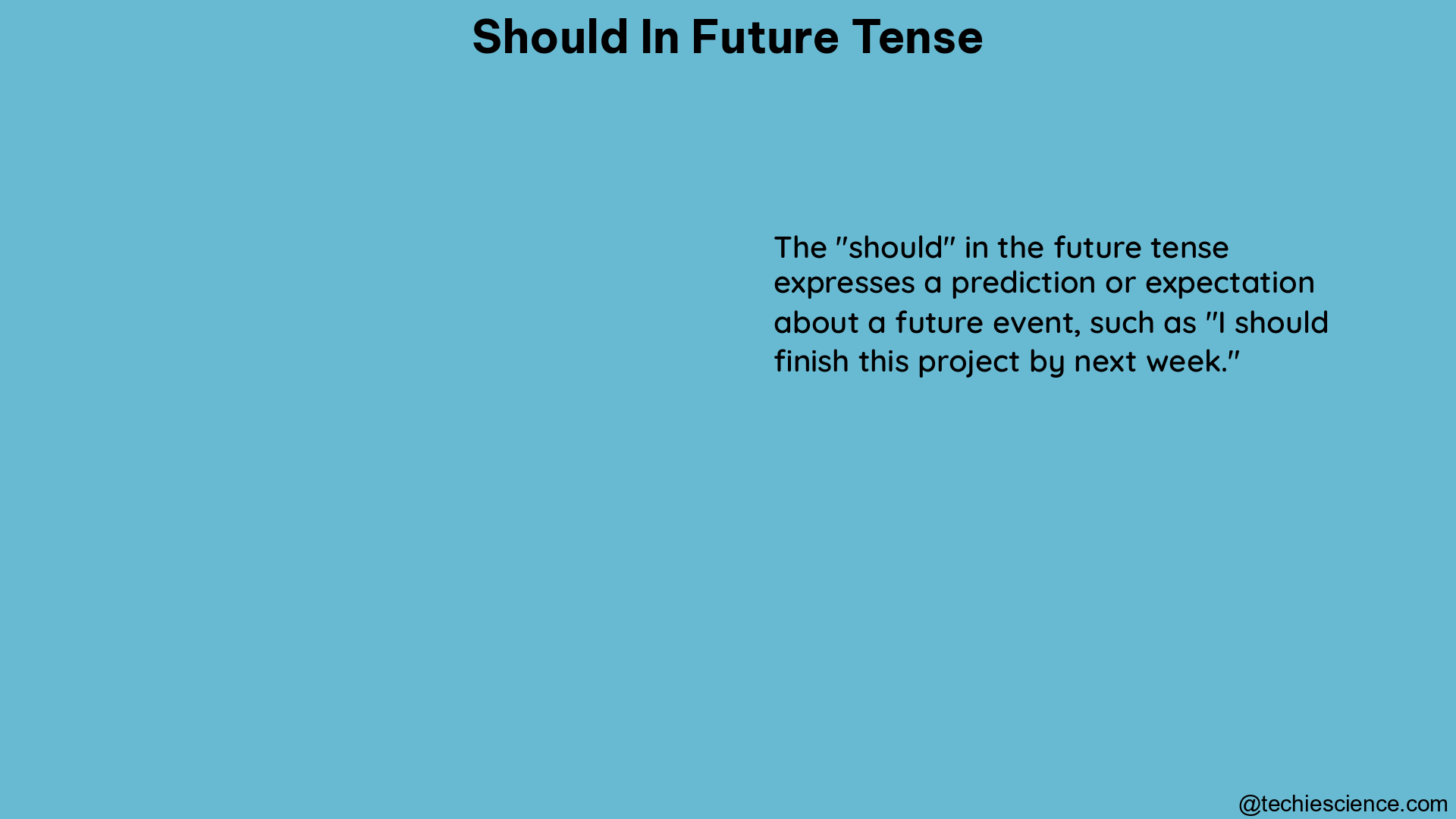“Should” is a versatile auxiliary verb that can be used to express advice, recommendations, or probabilities related to future events. Understanding the advanced details and grammatical specifications of using “should” in the future tense is crucial for effective communication and writing.
Advanced Details and Grammatical Specification
The word “should” is technically the past tense of “shall,” but it functions as an auxiliary verb with various uses beyond the past tense. When used in the context of the future tense, “should” serves to convey advice or a recommendation for an upcoming action or event.
Examples of “Should” in the Future Tense

Positive Statements
- “You should find a new job.” (Expressing advice for a future action)
- “He should work harder.” (Expressing advice for a future action)
Negative Statements
- “She shouldn’t give up.” (Expressing advice against a future action)
- “You shouldn’t eat so much junk food.” (Expressing advice against a future action)
Conditional Sentences
- “If I should find your coat, I will be sure to call you.” (Expressing a condition in the future)
- “Should you wish to do so, you may have hot tea and biscuits.” (Expressing a condition in the future)
Future Predictions
- “With an early start, they should be here by noon.” (Expressing a probable future event)
Theoretical Explanation
When using “should” in the future tense, it is crucial to understand that it is not used to indicate the simple future. Instead, it is used to express advice, recommendations, or probabilities related to future events. This distinction is important to avoid confusion with other tenses, such as the future perfect tense.
Nuances and Variations
Expressing Probability
The use of “should” in the future tense can also convey a sense of probability or likelihood. For example, “With the weather forecast predicting rain, we should have a wet weekend ahead.”
Expressing Obligation or Expectation
In some cases, “should” can be used to express a sense of obligation or expectation regarding a future action. For instance, “You should be at the meeting by 9 a.m. sharp.”
Expressing Uncertainty
When used in the future tense, “should” can also convey a degree of uncertainty or conditionality about a future event. For example, “If the project is completed on time, we should be able to launch the new product next month.”
Comparison with Other Modal Verbs
It’s important to distinguish the use of “should” from other modal verbs like “will,” “would,” and “could” when expressing future actions or events.
| Modal Verb | Usage in the Future Tense |
|---|---|
| “Will” | Expresses a simple future action or event (e.g., “I will go to the park tomorrow.”) |
| “Would” | Expresses a conditional or hypothetical future action or event (e.g., “If it rains, I would stay inside.”) |
| “Could” | Expresses a possibility or ability in the future (e.g., “With more practice, you could win the competition.”) |
| “Should” | Expresses advice, recommendations, or probabilities related to future events (e.g., “You should consider applying for that job.”) |
Conclusion
In summary, the use of “should” in the future tense is a crucial aspect of English grammar and communication. By understanding the advanced details, grammatical specifications, and nuances of this auxiliary verb, you can effectively convey advice, recommendations, and probabilities related to upcoming events. Mastering the use of “should” in the future tense will enhance your overall language proficiency and help you communicate more precisely and effectively.
Reference:
- https://www.butte.edu/departments/cas/tipsheets/grammar/would.html
- https://english.stackexchange.com/questions/108091/can-we-use-should-would-and-could-in-future-perfect-tense
- https://www.youtube.com/watch?v=05TCt7hzcLs
Hey! I am Arpita Bose Roy. My qualifications are M.A. in English with B. Ed. in both general education and special education. I have 2 years of experience as a “language analyst” at IIT Kharagpur and 4 years of experience as an “Academic Content Developer” at IIT Kharagpur. Currently, I am working as an academic writer at Lambdageeks.